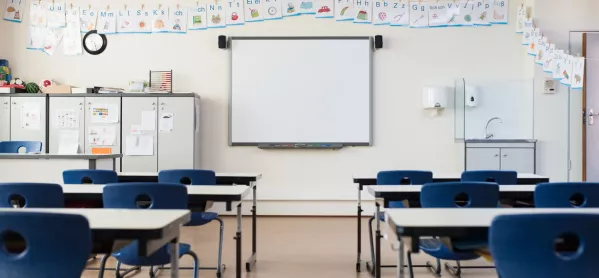More than 300,000 pupils self-isolated last Thursday after possible contact with coronavirus in their school, but the proportion of schools affected has fallen.
The Department for Education’s latest report on school attendance, which includes “more comprehensive data” on pupils being asked to self-isolate, comes amid intense discussions over whether exams need to be scrapped because of the amount of time students have spent out of the classroom.
Today’s DfE data shows that up to 301,000 pupils self-isolated on Thursday 5 November owing to potential contact with a case of coronavirus, and up to 361,000 pupils in state-funded schools did not attend for Covid-19 related reasons.
But the proportion of schools with at least one pupil who had to self-isolate fell from 21 per cent on 15 October to 16 per cent on 5 November.
Among secondary schools, 38 per cent reported they had one or more pupils self-isolating because of possible contact with Covid-19 in their school, down from 46 per cent on 15 October.
News: Majority of secondary schools now have Covid cases
Related: Nearly half of secondaries have Covid cases
Investigation: One in five schools had coronavirus cases in first month of term
The data has also found that nearly one in 10 schools (8-9 per cent) had more than 30 pupils self-isolating owing to potential contact with a case of coronavirus.
“Most groups asked to self-isolate are relatively small, the average (median) was approximately 12-13 per cent of the total number on roll in state-funded primaries and 3-4 per cent in state-funded secondaries,” according to the DfE.
As some schools were on half term in the weeks of Thursday 22 October and Thursday 29 October, the DfE compared data from 5 November with that of 15 October.
The DfE also said that pupil attendance had remained broadly stable over this time, with around 89 per cent of pupils on roll in attendance on 5 November as on 15 October.
Geoff Barton, general secretary of the Association of School and College Leaders, said: “We are hugely encouraged by the fact that the level of attendance in schools has remained stable despite the announcement of a new national lockdown.
“It is absolutely the right priority to keep schools open because of their critical importance not only in terms of education but also in the welfare of many children.
“It is good to see this early indication that the new lockdown does not appear to have spooked parents and that they continue to send their children [to school]. We very much hope that this continues.
“We are also pleased to see that the number of schools with one or more pupils self-isolating has fallen.
“However, the situation continues to be hugely challenging and schools need more support from the government.
“We are particularly concerned about the massive cost to schools and colleges of Covid safety measures and supply cover for staff who have to self-isolate. Their budgets cannot sustain this additional pressure and we once again call upon the government to act swiftly and reimburse these costs.”
A DfE spokesperson said: “We are prioritising children and young people’s education, by keeping nurseries, schools, colleges and universities open.
“Over 99 per cent of schools have been open every week since term began and with attendance remaining high and stable, millions of pupils are continuing to benefit from being in school, both in terms of their education and their wellbeing.”




